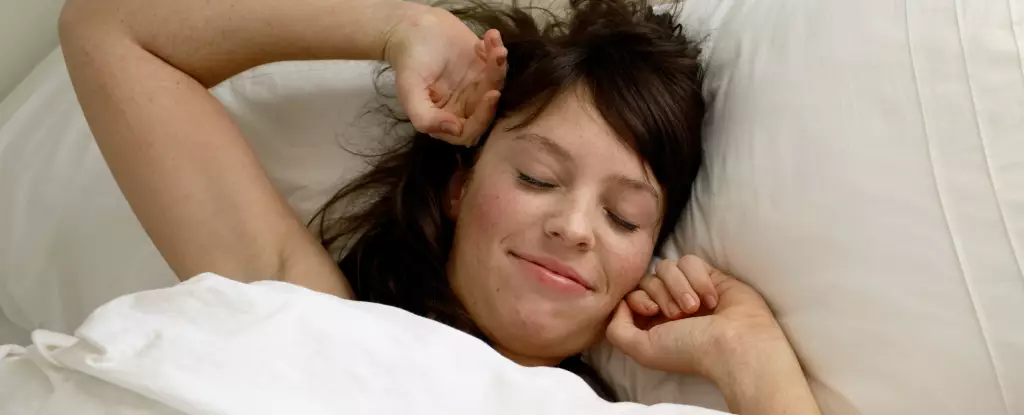Sleep has long been recognized as a fundamental aspect of human existence, serving not merely to rejuvenate the body but to enhance cognitive functions and foster creativity. Notably, legendary author John Steinbeck articulated this idea succinctly: “It is a common experience that a problem difficult at night is resolved in the morning after the committee of sleep has worked on it.” This notion isn’t just poetic; modern scientific inquiry supports it. Recent studies illuminate how sleep can lead to improved decision-making and creative breakthroughs, removing the haze of impulsive judgment and first impressions.
A 2024 study conducted by researchers at Duke University reflects a new understanding of sleep’s role in refining our thought processes. In their experiment featuring a virtual garage sale, participants had the opportunity to explore various boxes of items, with some containing valuable objects and others filled with mere trifles. Prompt decisions led participants to heavily rely on first impressions, often overlooking hidden gems among the clutter. However, after a restful night of sleep, the same participants returned to make their choices with a more level-headed perspective, vastly improving their decision-making. The sleep allows their minds to digest mixed information, mitigating biases that occur with snap judgments.
This phenomenon might be linked to how our brains process information during sleep—it seems our mental faculties continue to evaluate our day’s experiences and impressions, which in turn facilitates more rational and informed choices upon waking. The role of sleep in decision-making is crucial, suggesting it acts as a cognitive filter that enhances our ability to see past misleading initial impressions.
Beyond improving decisions, sleep has demonstrated a remarkable ability to bolster problem-solving skills. A study from 2019 illuminated this aspect through a creative approach where participants were acoustically cued while they slumbered. By associating a unique sound to unsolved puzzles during their waking hours, researchers found that upon hearing the same sound while asleep, participants were able to tap into their subconscious and make significant progress in solving those puzzles the next day. This suggests that not only does sleep reinforce memory, but it may also initiate latent problem-solving processes.
Interestingly, sleep can act as a deliberate catalyst for insight, allowing individuals to connect disparate pieces of information they might overlook when fully awake. Research published in 2023 confirmed this when participants demonstrated an ability to identify indirect correlations between items after a night’s rest, indicating that sleep enhances our cognitive flexibility to recognize relationships between concepts.
Many renowned figures, including Thomas Edison and Salvador Dali, have espoused the idea that the border between wakefulness and sleep is a fertile ground for creative thought. Edison’s famous practice of napping with a ball in his hand is a testament to his understanding of this creative threshold. Recent investigations reaffirm Edison’s principles; studies indicate that experiencing light sleep can enhance an individual’s capacity to discover hidden patterns in complex problems. For example, subjects tasked with solving math problems performed better when they entered a light sleep state, as this phase of consciousness allowed for unique insights.
Moreover, a 2023 study has shown a direct connection between hypnagogic imagery—those strange and whimsical thoughts that often occupy our minds as we drift off—and creative problem-solving. When participants engaged in tree-themed creative exercises before sleep noticed that imagery from their hypnagogic state significantly influenced their problem-solving capabilities. This indicates that the brain’s processes during sleep can reshape how we approach creative challenges.
Moving Forward: Embracing the Creativity of Sleep
The emerging scientific consensus regarding sleep paints it not as a passive state but as an active and vital part of our cognitive process. It is becoming increasingly apparent that embracing sleep can empower individuals to make more astute decisions and unlock creative abilities in ways we previously underestimated. Far from mere rest, sleep emerges as a crucial player in our ability to navigate complex problems, innovate, and enhance our cognitive acumen.
As our understanding of sleep continues to evolve, so too does the imperative to prioritize it in our daily lives. In a culture that often celebrates constant activity and wakefulness as badges of honor, perhaps it’s time to embrace the restorative powers of sleep—not just as downtime, but as an essential component of our mental and creative toolkit. In essence, allowing ourselves the time to sleep might just lead to our next great idea or solution, making it a true ally in both creativity and decision-making.


Leave a Reply